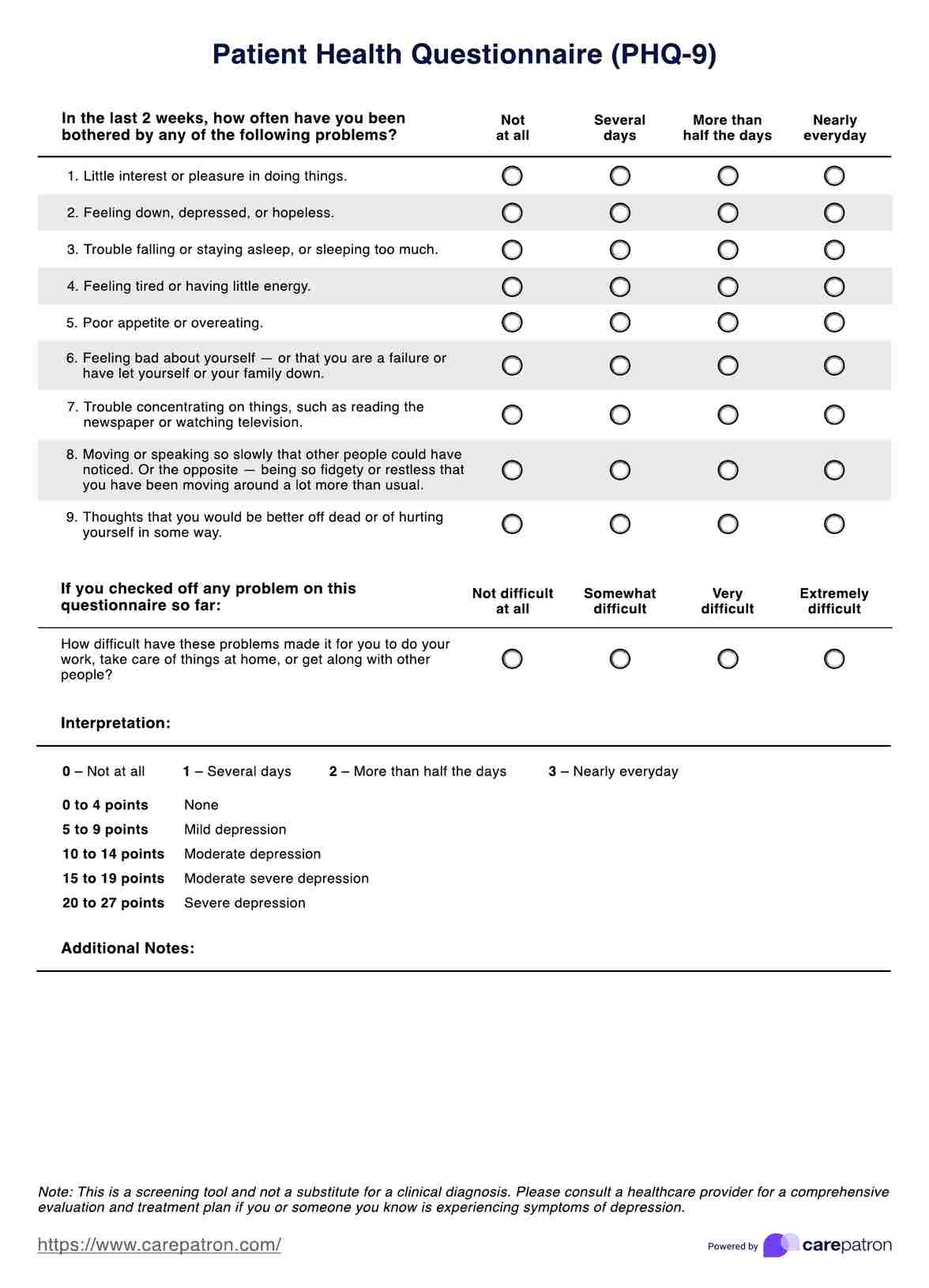While the PHQ-9 is a valuable screening tool for depression, it is not sufficient for a diagnosis. A full clinical assessment, along with other depression scales and other measures, is required to diagnose major depression accurately.

Patient Health Questionnaire (PHQ-9)
Take the first step towards managing and evaluating depression symptoms by using the Patient Health Questionnaire (PHQ-9).
Use Template
Patient Health Questionnaire (PHQ-9) Template
Commonly asked questions
Yes, the PHQ-9 is both reliable and valid. Studies have shown it to be highly reliable and valid for diagnosing depression across different settings and populations. It has relatively sound psychometric properties compared to other depression screening instruments.
It typically takes about 3 to 5 minutes for a patient to complete the PHQ-9, making it a quick and efficient tool for assessing depression severity.
EHR and practice management software
Get started for free
*No credit card required
Free
$0/usd
Unlimited clients
Telehealth
1GB of storage
Client portal text
Automated billing and online payments











